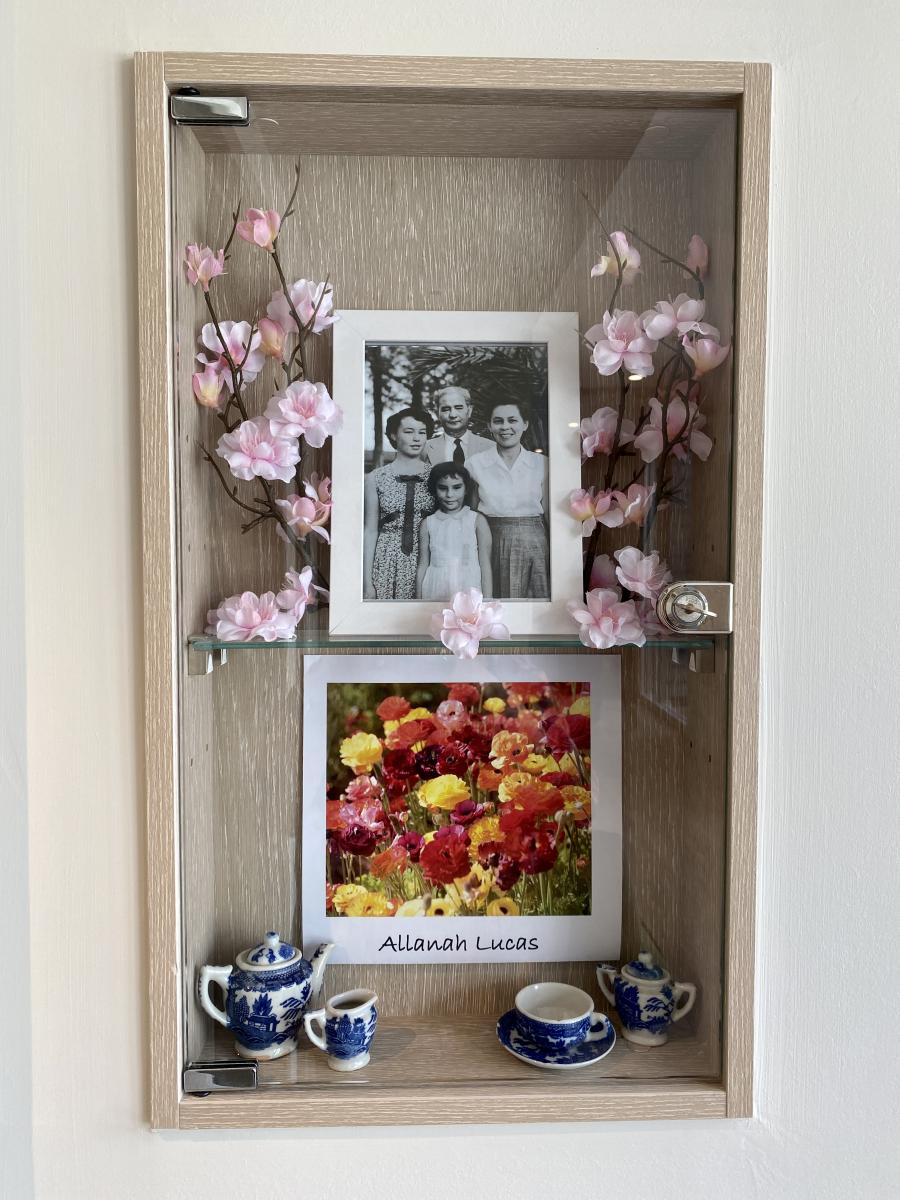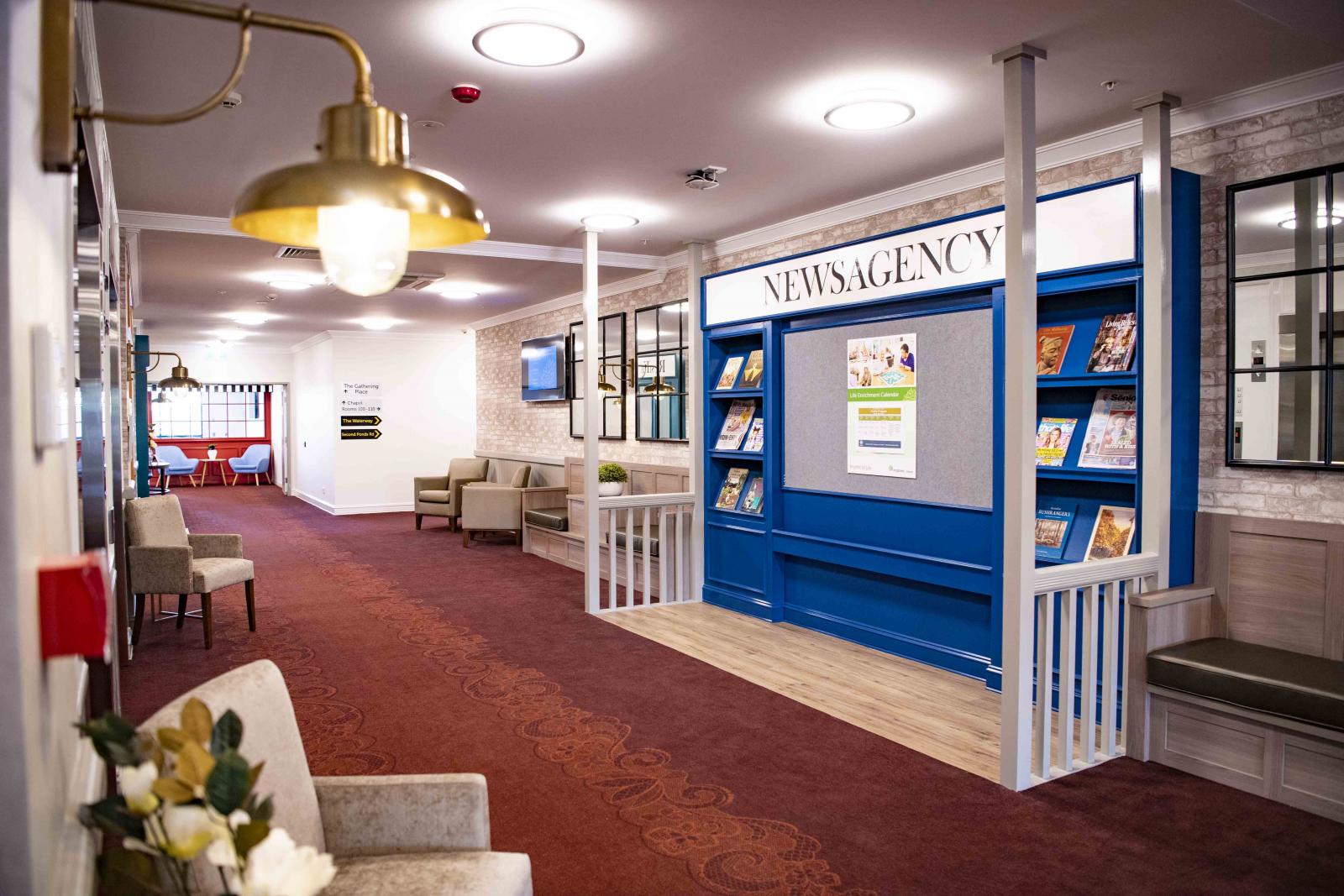With nearly 500,000 Australians currently living with dementia, and that number expected to double over the next 35 years, the need for well-designed memory loss accommodation has never been greater.
To this end, the good news is that care providers are increasingly providing innovative solutions to assist people living with dementia.
Below are some great examples of planned and in-place solutions.
Memory boxes in Western Australia

aged care project
In 2021, a new retirement living and aged care facility opened in Western Australia’s Margaret River region, complete with innovative memory boxes to help residents with dementia.
Capecare has opened its $37.5 million project in the coastal town of Dunsborough, after receiving $9.6 million in State and Federal grants..
The facility includes an 80-bed residential care facility and 21 two-bedroom independent living apartments, along with a new headquarters for the Dunsborough branch of the Country Women’s Association (CWA).
Capecare outgoing chair Nadine Carter said the facility would include design features to help residents with dementia, including memory boxes, careful use of colour, tailored furnishings and fittings and signage with rest stops.
“Nursing and care staff have all been involved in the design process. The use of natural light throughout the complex is a standout feature,” Ms Carter said.
The memory boxes were covered in this ABC story, which said they provided emotional support for residents and also helped them to remember where they lived in the complex and stay independent for longer.
One resident, Allanah Lucas, told the ABC her memory box - a wooden box with a see-through door - helped her remember her father and his love of orchids, and their journey from Malaysia when she was young.
"By the time I have got to the dining room I am feeling pretty on top of the world," Ms Lucas was reported as saying.
Every time I go through my doorway … I always look at them all and remember so many wonderful times and things that have happened in my life … and all the beautiful people in my life as well.
"You have a lot of time to think when you're in a home and you do travel back in your mind a lot … sometimes you need to be reminded about the really happy good times.”
HammondCare shops
Shops specifically designed for people living with dementia - including through reduced noise and distractions and clear and accessible signage - are set to be part of a national network of aged care facilities.
People living with dementia strongly report shopping as their favourite activity, providing them with dignity, autonomy and a sense of meaning and purpose, according to international research.

To keep the experience of shopping real for people with dementia living in aged care, Coles will design and develop dementia friendly Village Stores, in consultation with HammondCare.
These stores will become a feature of HammondCare’s dementia-specific villages in NSW, Victoria and soon South Australia.
Shopping for groceries will be enhanced for residents by creating a dementia-friendly experience, including specially designed check-outs, counters and shelving.
Residents will use Village Stores for their daily food supplies at no cost to them while being available to family of residents, staff and the local community for retail sales.
The stores will be refreshed for seasonal events like Christmas and Easter, helping to trigger feelings and memories for residents as they prepare for special occasions with family and loved ones.
Throughout the partnership, HammondCare will contribute its research and knowledge on best practice for aged and dementia care to help Coles to create accessible shopping environments and supportive experiences for older people and those living with dementia.
Anglicare main street architecture
Two Sydney aged care facilities have harnessed traditional main street architecture to help residents with dementia find services.
Anglicare has used the ‘main street’ format at two of its recently-opened Western Sydney residential aged care facilities - at Melva McDonald Lodge at Rooty Hill and Dudley Foord House at The Ponds.

residents with dementia
Melva McDonald Lodge features five shops, including a hairdresser, newsagency, café, physiotherapist and a place to visit the facility’s staff.
Dudley Foord House also includes a number of shops, including a hairdresser as well as a library, meeting place, wellness centre and a place to visit the chaplain.
The shops all have ornate frontages, clear signage and different colours, meaning they are easier to identify by residents who may have memory loss, along with adding character and charm for all residents.
Martin Todorovitch, Melva McDonald Lodge's manager, said the approach had been very popular with residents.
The old style ‘main street’ reminds residents of their youth and also assists with finding the services they need. Each ‘shop’ is a different colour,” Mr Todorovitch said.
The ‘main street’ format success underlines the need for careful design approaches for facilities catering for people with dementia, and the need to integrate these residents within the broader community.
Bolton Clarke’s digital wallpaper
Bolton Clarke’s Galleon Gardens Memory Support Unit on Queensland’s Gold Coast is the first in the world to use digital wallpaper to help people with dementia.
Researchers, care teams and memory support residents took part in a co-design process during 2020 to develop engaging content for the wall.

Programs developed and implemented as a result include:
- Dot-to-Dot game: When a resident or staff member touches a coloured dot, a part of an image is revealed. Residents try to guess the image before the entire picture appears.
- Word game: A word with letters missing appears on the wallpaper and residents figure out the word.
- Musical Keyboard: The entire wallpaper resembles a piano keyboard with the keys randomly changing colour.
Bolton Clarke Galleon Gardens Lifestyle Coordinator Gwen Bonney said as a result of the co-design process the digital wallpaper was enhancing resident engagement with the physical environment, promoting physical activity, and encouraging social interaction.
“The team uses the activities every day, even if just for a few minutes, and the residents are engaging with the wall by themselves now too,” she said.
“It’s very inclusive – regardless of a person’s cognitive ability, they can still interact and get involved as part of the group.”
Find out more
Search Downsizing.com.au’s aged care listings to find dementia care accommodation near you.
Click on the “Filters” section of the search box, and then choose “Dementia Care” under “Level of Support Available”, to find facilities which market themselves as providing this level of care.


